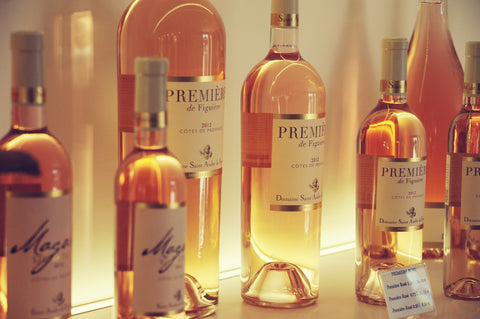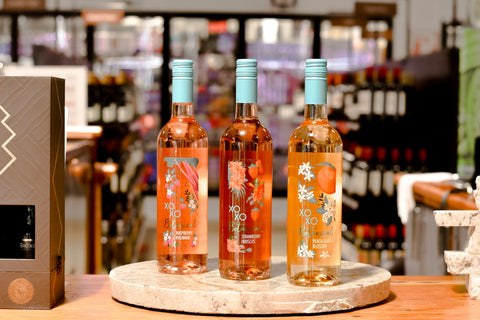In the world of wine, quality and value go hand-in-hand. While many people enjoy an affordable, everyday wine, some wines are elevated by their quality, making them not only more desirable but also more valuable. But what truly makes a wine "high-quality," and how does it impact its value?
In this post, we’ll dive into the elements of wine quality, explore what determines the value of a wine, and why discerning wine lovers should pay attention to these factors when choosing a bottle.

What Defines the Quality of Wine?
Quality wine is determined by several key factors, each playing a significant role in the final product. Understanding these can help wine lovers choose bottles that offer excellent taste and value for their money.
1. Grape Variety and Vineyard Location
The type of grape and where it’s grown are foundational to a wine's quality. Grapes grown in premium regions, such as Bordeaux or Napa Valley, benefit from unique terroirs—specific combinations of soil, climate, and topography—that lend distinct flavors and nuances. For example, Cabernet Sauvignon from Napa Valley often has a bold, rich taste with deep fruit notes, while Pinot Noir from Burgundy is known for its delicate, earthy profile.
2. Winemaking Techniques
The skill and knowledge of the winemaker play an instrumental role in determining wine quality. Techniques such as fermentation time, aging process, and even the types of barrels used (such as oak) influence the wine's flavor profile, texture, and aroma. Wines aged in high-quality oak barrels, for example, gain a complex depth of flavor that adds to both their quality and value.
3. Aging Potential
The aging potential of a wine also impacts its quality and, ultimately, its value. Wines with a strong tannin structure, balanced acidity, and concentrated flavors can improve with age, developing a refined complexity over time. Red wines like Bordeaux and Italian Barolos are examples of wines with strong aging potential, often becoming more valuable the longer they age.
4. Consistency and Vintage
The consistency of a winery in producing exceptional wine year after year adds to a wine’s quality and reputation. Likewise, vintage—the specific year the grapes were harvested—can influence a wine's quality, as certain years yield better harvests due to optimal weather conditions. Exceptional vintages are often more valuable, particularly when coming from reputable wine regions.
The Relationship Between Quality and Value
Quality wines require more resources and expertise to produce, which is why they often carry a higher price tag. Here’s how quality directly impacts value:
1. Rarity and Exclusivity
Quality wines are often produced in smaller quantities to ensure exceptional care throughout the winemaking process. Limited production makes these wines rare and, thus, more valuable. Collectors and enthusiasts often pay a premium for these exclusive wines, as they’re seen as investments or special occasion items.
2. Desirability and Prestige
Certain wines gain a prestigious reputation, creating high demand. For example, a first-growth Bordeaux or a vintage Champagne is often priced at a premium due to its reputation for excellence. The brand recognition and long-standing quality associated with these wines make them highly desirable, adding to their value.
3. Flavor Complexity and Drinking Experience
The value of a wine is also reflected in the depth of its flavor, aroma, and overall drinking experience. High-quality wines offer layered flavors, distinct aromas, and a balanced finish that enhances the drinking experience. These characteristics make quality wines more enjoyable and memorable, which consumers are often willing to pay more for.
4. Aging Capacity and Investment Value
Quality wines with strong aging potential can increase in value over time. Collectors often seek out these wines as investments, knowing they will become even more desirable and valuable as they mature. This makes aging wines an attractive option for those looking to build a collection that appreciates in worth.
Why Quality Matters When Choosing a Wine
For the average wine drinker, quality impacts both taste and overall satisfaction. Higher-quality wines often have better balance, smoother tannins, and richer flavors, making them more enjoyable to drink. While budget-friendly wines have their place, investing in quality wine can elevate a simple meal or gathering into an unforgettable experience.
If you're looking to explore quality wines that offer an exceptional experience, Five Towns Wines & Liquors in New York offers a wide variety of wines, from everyday favorites to rare, high-quality bottles. Their knowledgeable staff can help guide you through selecting the perfect wine for any occasion, budget, or taste preference.


